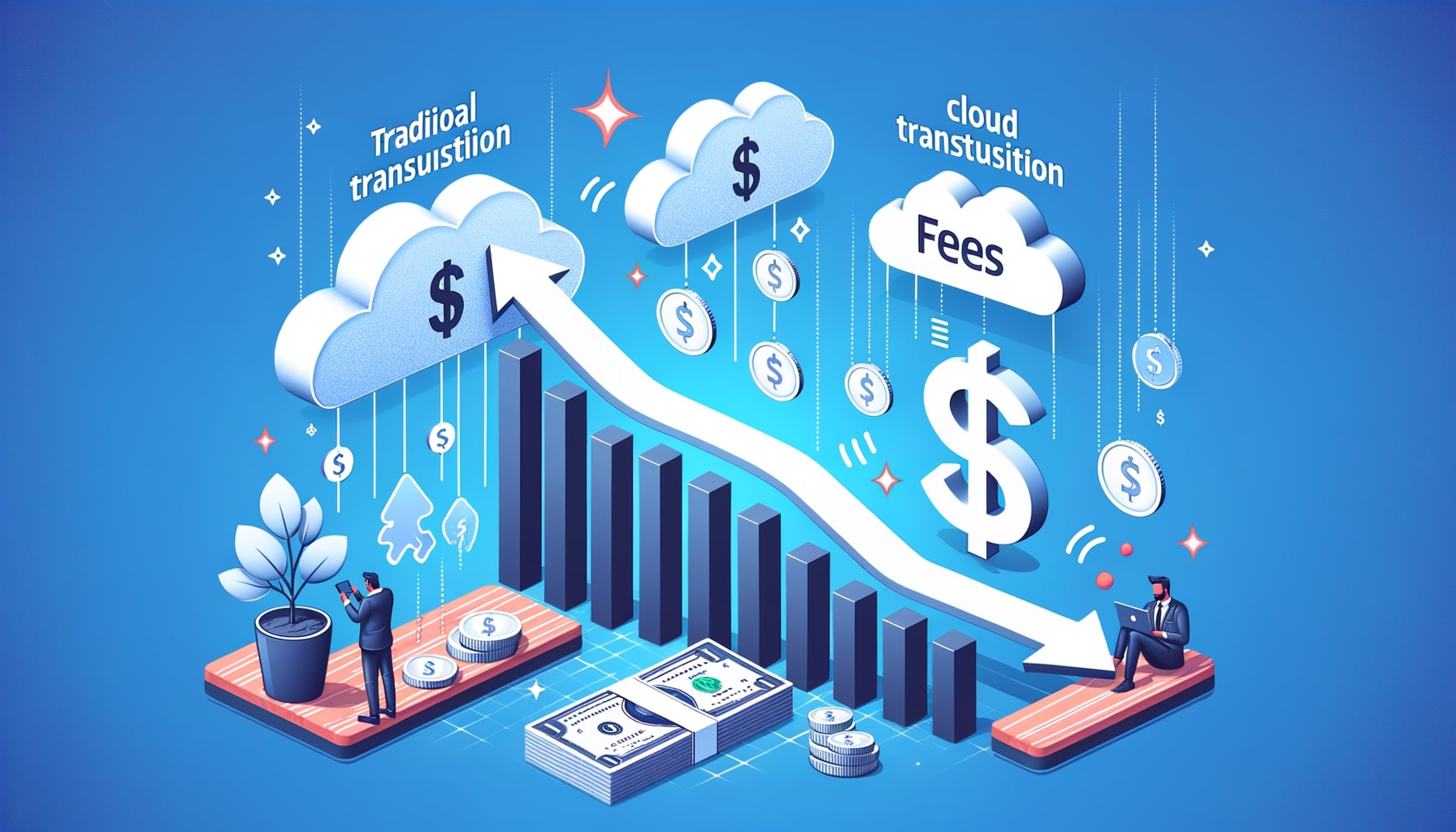How Cloud Payments Are Transforming E-commerce
In recent years, the world of e-commerce has witnessed a significant transformation with the rise of cloud payments. As technology continues to evolve, businesses are constantly seeking innovative ways to streamline their operations and enhance customer experience. Cloud payments have emerged as a game-changer in the e-commerce industry, revolutionizing the way transactions are conducted online. This article will delve into the various aspects of cloud payments and explore how they are transforming e-commerce.
Understanding Cloud Payments: What Are They and How Do They Work?
Cloud payments, also known as cloud-based payments or cloud commerce, refer to the process of conducting financial transactions over the internet using cloud computing technology. Unlike traditional payment methods that rely on physical infrastructure, cloud payments leverage the power of the internet and cloud-based platforms to facilitate secure and efficient transactions.
At its core, cloud payments involve the storage and processing of payment data in the cloud, eliminating the need for businesses to handle sensitive customer information directly. Instead, this data is securely stored in remote servers, accessible only to authorized parties. When a customer makes a purchase, their payment information is encrypted and transmitted to the cloud, where it is processed and verified. Once the transaction is complete, the necessary funds are transferred, and both the customer and the merchant receive confirmation of the payment.
Advantages of Cloud Payments for E-commerce Businesses
The adoption of cloud payments offers numerous advantages for e-commerce businesses. Firstly, it provides a seamless and convenient payment experience for customers. With cloud payments, customers can make purchases from anywhere, at any time, using their preferred payment method. This flexibility enhances customer satisfaction and encourages repeat business.
Additionally, cloud payments enable businesses to streamline their operations and reduce costs. By leveraging cloud-based platforms, businesses can eliminate the need for physical payment terminals and associated maintenance costs. Furthermore, cloud payments offer scalability, allowing businesses to easily handle fluctuations in transaction volumes without the need for additional infrastructure.
Security and Fraud Prevention in Cloud Payments
One of the primary concerns for businesses and customers alike when it comes to online transactions is security. However, cloud payments offer robust security measures to protect sensitive payment data. Cloud-based platforms employ advanced encryption techniques to ensure that payment information is securely transmitted and stored. Additionally, these platforms often incorporate multi-factor authentication and tokenization to further enhance security.
Furthermore, cloud payments enable businesses to leverage advanced fraud prevention tools and technologies. Machine learning algorithms and artificial intelligence can analyze transaction patterns and detect suspicious activities in real-time. This proactive approach to fraud prevention helps businesses mitigate risks and protect both their customers and their reputation.
Integrating Cloud Payments into E-commerce Platforms: Best Practices
Integrating cloud payments into e-commerce platforms requires careful planning and execution. To ensure a seamless integration, businesses should follow best practices. Firstly, it is crucial to select a reputable and reliable cloud payment provider. Conduct thorough research and consider factors such as security measures, scalability, and compatibility with existing systems.
Next, businesses should prioritize user experience when integrating cloud payments. The payment process should be intuitive and user-friendly, with minimal steps and distractions. Additionally, businesses should offer a variety of payment options to cater to different customer preferences.
Furthermore, businesses should regularly monitor and analyze payment data to identify areas for improvement. By leveraging analytics tools, businesses can gain insights into customer behavior, transaction patterns, and payment success rates. This data-driven approach allows businesses to optimize their payment processes and enhance overall performance.
The Role of Cloud Payments in Enhancing Customer Experience
Customer experience is a critical factor in the success of any e-commerce business. Cloud payments play a significant role in enhancing customer experience by providing a seamless and convenient payment process. With cloud payments, customers can complete transactions quickly and securely, without the need for manual data entry or physical payment terminals.
Moreover, cloud payments enable businesses to offer personalized payment experiences. By leveraging customer data stored in the cloud, businesses can tailor payment options and recommendations based on individual preferences. This level of personalization not only enhances customer satisfaction but also increases the likelihood of repeat purchases.
Cloud Payments and Global E-commerce: Breaking Barriers
The advent of cloud payments has also played a pivotal role in breaking barriers in global e-commerce. Traditionally, cross-border transactions were often hindered by complex payment processes, currency conversions, and high transaction fees. However, cloud payments have simplified the process, enabling businesses to expand their reach and cater to a global customer base.
Cloud payments facilitate seamless cross-border transactions by handling currency conversions automatically. This eliminates the need for customers to manually calculate exchange rates and reduces the risk of errors. Additionally, cloud payments often offer competitive transaction fees, making it more cost-effective for businesses to engage in international trade.
Challenges and Considerations in Adopting Cloud Payments
While cloud payments offer numerous benefits, businesses must also be aware of the challenges and considerations associated with their adoption. One of the primary concerns is data security. Businesses must ensure that their chosen cloud payment provider adheres to strict security standards and compliance regulations. Additionally, businesses should regularly update their security protocols and educate employees on best practices to mitigate the risk of data breaches.
Another consideration is the potential for downtime or service interruptions. As cloud payments rely on internet connectivity, businesses must have contingency plans in place to handle any disruptions. This may involve having backup systems or alternative payment methods available to minimize the impact on customers.
Frequently Asked Questions (FAQs) about Cloud Payments in E-commerce
Q.1: What is the difference between cloud payments and traditional payment methods?
Cloud payments leverage cloud computing technology to process and store payment data, while traditional payment methods rely on physical infrastructure such as payment terminals.
Q.2: Are cloud payments secure?
Yes, cloud payments employ advanced encryption techniques and security measures to protect sensitive payment data.
Q.3: Can cloud payments be integrated into existing e-commerce platforms?
Yes, cloud payments can be seamlessly integrated into existing e-commerce platforms by selecting a compatible payment provider and following best practices.
Q.4: How do cloud payments enhance customer experience?
Cloud payments provide a seamless and convenient payment process, allowing customers to complete transactions quickly and securely.
Q.5: Can cloud payments facilitate cross-border transactions?
Yes, cloud payments simplify cross-border transactions by handling currency conversions automatically and offering competitive transaction fees.
Conclusion
Cloud payments have emerged as a transformative force in the e-commerce industry, revolutionizing the way transactions are conducted online. By leveraging the power of cloud computing, businesses can streamline their operations, enhance security, and provide a seamless payment experience for customers.
Cloud payments also break barriers in global e-commerce, enabling businesses to expand their reach and cater to a global customer base. However, businesses must carefully consider security measures and potential challenges when adopting cloud payments. Overall, cloud payments have the potential to reshape the e-commerce landscape, offering numerous benefits for businesses and customers alike.










